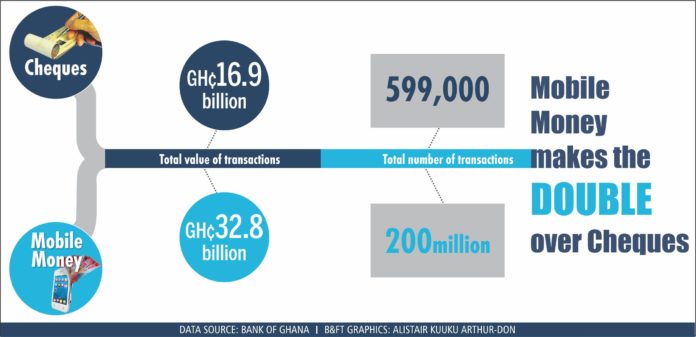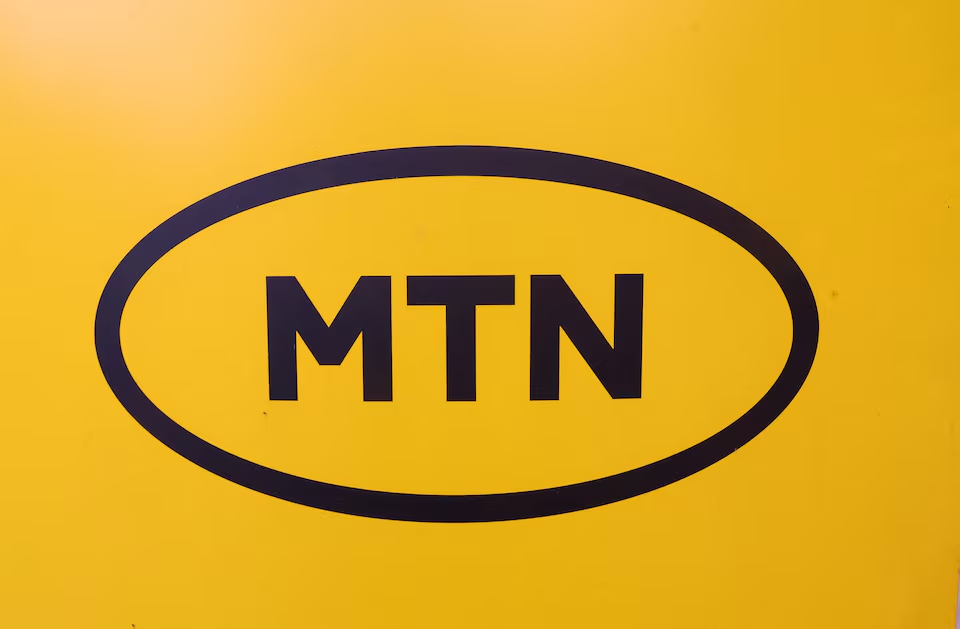
Data from the Bank of Ghana has revealed that mobile money transaction-growth continues to be a dominant force in the financial sector, growing at double the rate compared to bank transactions – a further testimony that it holds the key to financial inclusion in the country.
According to the Summary of Economic and Financial data, mobile money transactions recorded GH¢32.8billion in value as at the end of 2019 – signifying a more than 45 percent increase from the previous year’s value. However, cheques – which are the main payment system for banks – recorded GH¢16.9billion in December 2019; a decline of GH¢300million from the value recorded in the previous year.
What makes the mobile money platform seem even more powerful is the number of transactions being brought into focus. The total number of transactions recorded under mobile money as of December 2019 was 200 million; whereas that of banks was 599,000 – just about 3 percent of the mobile money number.
Even the mobile money interoperability, which was launched less than two years ago, has seen a 215 percent jump in value of transactions since December 2018 – recording GH¢132million in transaction value from 1,642 transactions.
These analyses affirm one thing: that the mobile money platform plays an integral role in the country’s financial inclusion agenda. In fact, the fourth Economic Update Report on Ghana published by the World Bank says the country is the fastest-growing market for the mobile money platform of any in Africa.
According to the report, of the 17 percentage points increase in access to formal financial services between 2010 and 2015, mobile money alone accounted for 7 percent while banks contributed only 2 percent. Again, mobile money and other non-bank financial institutions contributed an additional 8 percent.
This essentially means that, within the five-year period, a lot more people are using mobile money platforms and other non-bank financial institutions to access financial services such as paying bills, sending and receiving money, among others, rather than the traditional method of using banks.
What has accounted for this change in paradigm, the report says, is the rapid penetration of mobile phones in the country – making Ghana the fastest-growing mobile money market in Africa. The total number of mobile voice subscriptions grew 39 percent from 25.6 to 37.4 million between 2012 and 2017, resulting in a six-fold increase in registered mobile money accounts between 2012 and 2017 – from 3.8 million to 23.9 million.
The report adds that banks have, on the other hand, recently contributed the least to increasing financial inclusion across the country as a result of their lack of focus on offering financial solutions to everyday Ghanaians. They have instead focused on corporate banking and high net worth individuals.
Source: thebftonline.com





